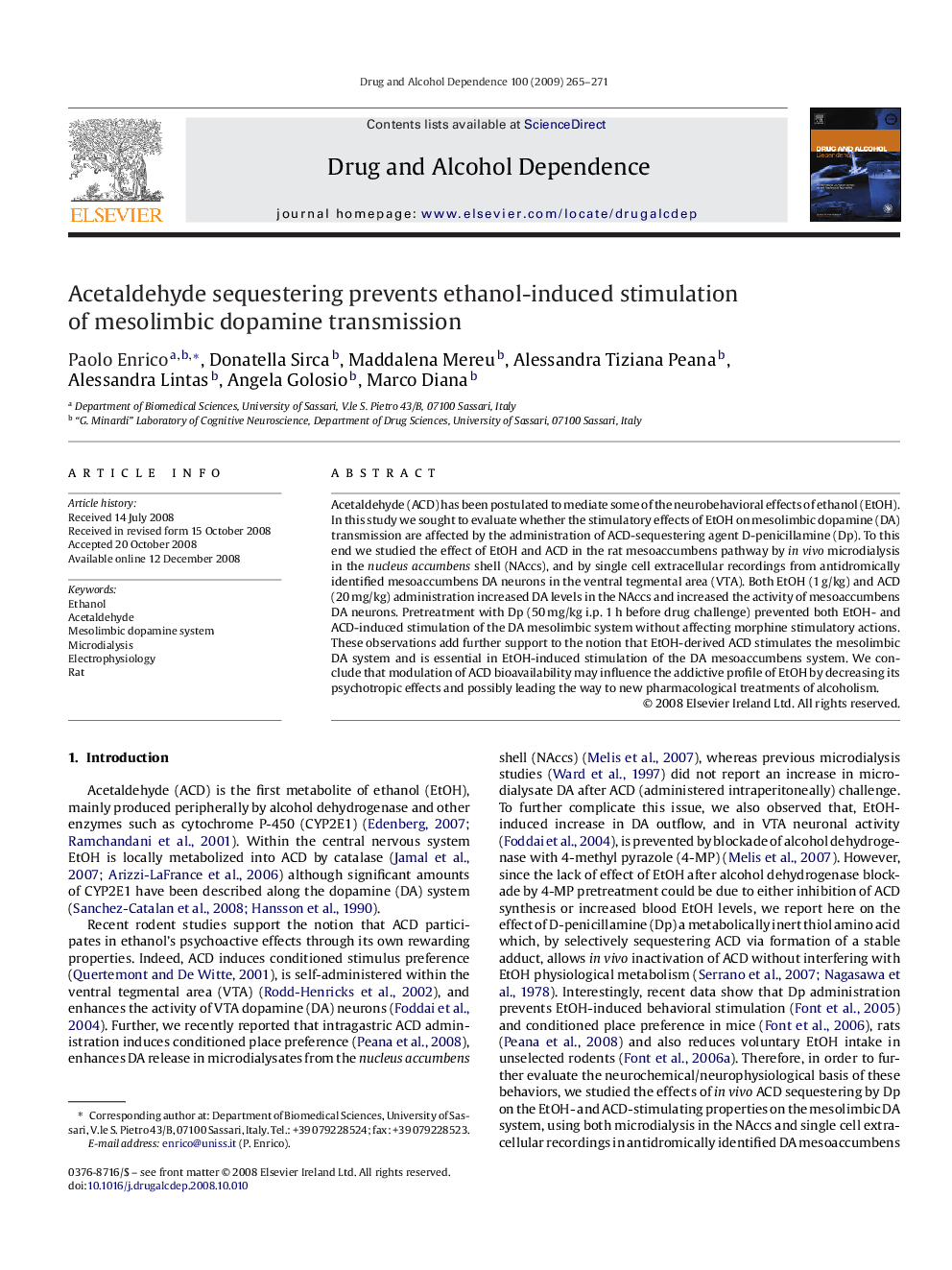| Article ID | Journal | Published Year | Pages | File Type |
|---|---|---|---|---|
| 1070891 | Drug and Alcohol Dependence | 2009 | 7 Pages |
Acetaldehyde (ACD) has been postulated to mediate some of the neurobehavioral effects of ethanol (EtOH). In this study we sought to evaluate whether the stimulatory effects of EtOH on mesolimbic dopamine (DA) transmission are affected by the administration of ACD-sequestering agent D-penicillamine (Dp). To this end we studied the effect of EtOH and ACD in the rat mesoaccumbens pathway by in vivo microdialysis in the nucleus accumbens shell (NAccs), and by single cell extracellular recordings from antidromically identified mesoaccumbens DA neurons in the ventral tegmental area (VTA). Both EtOH (1 g/kg) and ACD (20 mg/kg) administration increased DA levels in the NAccs and increased the activity of mesoaccumbens DA neurons. Pretreatment with Dp (50 mg/kg i.p. 1 h before drug challenge) prevented both EtOH- and ACD-induced stimulation of the DA mesolimbic system without affecting morphine stimulatory actions. These observations add further support to the notion that EtOH-derived ACD stimulates the mesolimbic DA system and is essential in EtOH-induced stimulation of the DA mesoaccumbens system. We conclude that modulation of ACD bioavailability may influence the addictive profile of EtOH by decreasing its psychotropic effects and possibly leading the way to new pharmacological treatments of alcoholism.
